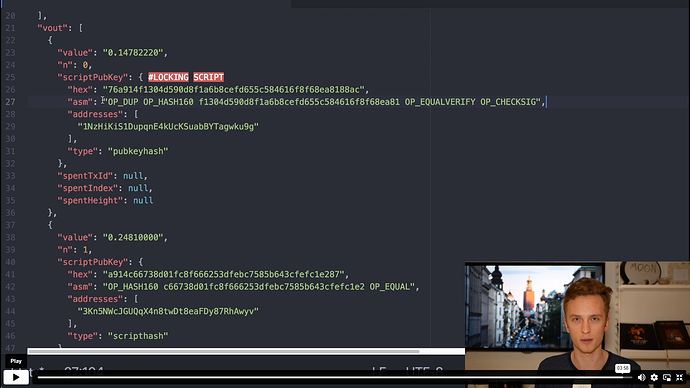Summary of the Section:
Pay to Public Key Hash (P2PKH)
Bitcoin Transactions are made of input and output…
UTXOs (unspent transaction outputs). A Bitcoin Wallet reads the blockchain for UTXOs attached to the public key. Sum of those UTXOs in your wallet is the balance you own.
Locking Script (Scriptpubkey) is a piece of code that is embedded in every bitcoin transaction and only Unlocking Script (ScriptSig) can unlock this script. This mechanism helps the network to validate the transactions.
Combining Locking Script and Unlocking Script to validate
Bitcoin uses the hexadecimal to represent code, functions etc so knowing the basics of it is important.
Serialization. Is the process of converting data into something that can easily transmit over the network. All bitcoin transactions are serialized. What we see usually on Blockchian explorer is transaction data represented in JSON format for us humans to read easily.




